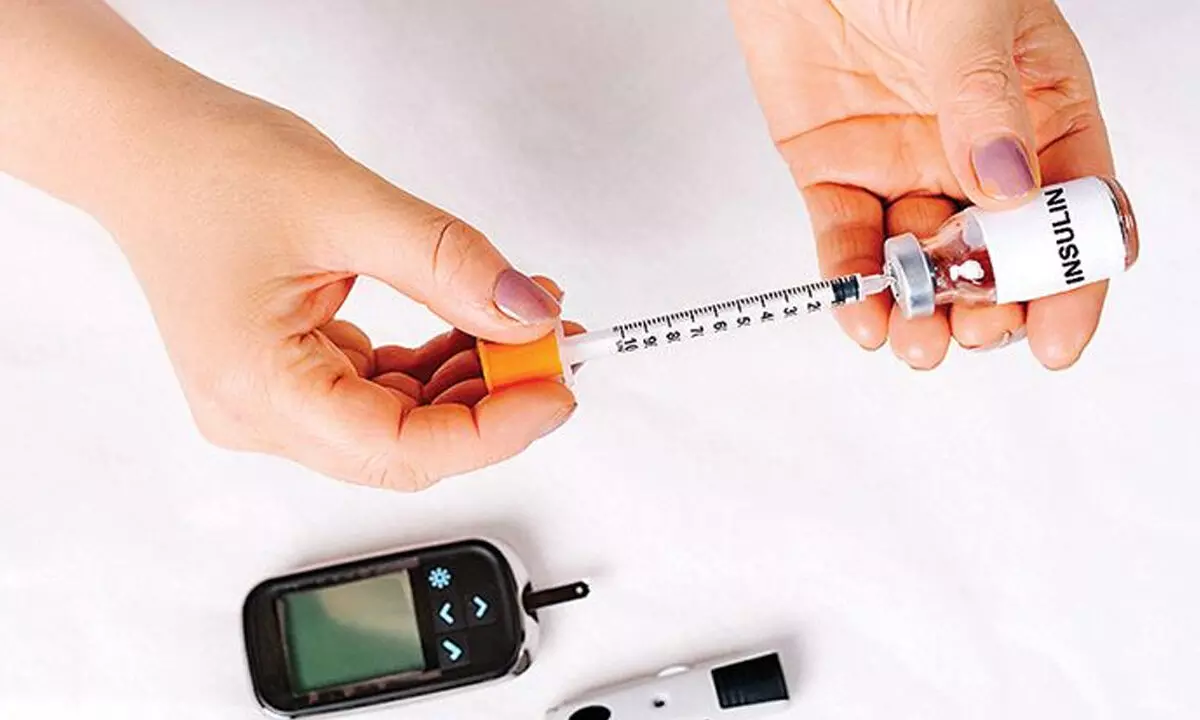Insulin resistance found to elevate risk of aortic stenosis in men

A recent study has revealed a strong link between insulin resistance and an increased risk of aortic stenosis (AS), a prevalent heart valve disease, in men over the age of 45.
A recent study has revealed a strong link between insulin resistance and an increased risk of aortic stenosis (AS), a prevalent heart valve disease, in men over the age of 45. Published in the peer-reviewed journal Annals of Medicine, the research sheds light on potential new treatment avenues for AS, which, if untreated, can result in life-threatening heart failure.
Aortic stenosis occurs when the aortic valve narrows or fails to open fully, hindering blood flow from the heart to the body. Over time, the valve thickens and stiffens, forcing the heart to work harder to pump blood, eventually leading to severe complications.
The study, conducted by researchers at Kuopio University Hospital in Finland, examined 10,144 Finnish men aged 45–73 who were free of AS at the beginning of the study. Over an average follow-up period of 10.8 years, 116 participants (1.1%) developed aortic stenosis.
Researchers identified key biomarkers associated with insulin resistance, including fasting insulin, insulin levels at specific intervals, proinsulin, and serum C-peptide. These biomarkers were significant predictors of aortic stenosis even after accounting for other risk factors such as high blood pressure, body mass index (BMI), and diabetes or aortic valve malformations.
Lead author Dr. Johanna Kuusisto emphasized that these findings highlight insulin resistance as a potentially modifiable risk factor for aortic stenosis. “Managing metabolic health could offer a novel approach to reducing the risk of aortic stenosis and improving cardiovascular health in aging populations,” she stated.
With insulin resistance becoming increasingly common due to lifestyle factors, the study underscores the importance of weight control and regular exercise to enhance insulin sensitivity. Dr. Kuusisto called for further research to explore how lifestyle modifications could help prevent aortic stenosis and mitigate its progression.
This discovery offers a promising step forward in understanding and addressing aortic stenosis, particularly in at-risk male populations.
Insulin resistance found to elevate risk of aortic stenosis in men
A recent study has revealed a strong link between insulin resistance and an increased risk of aortic stenosis (AS), a prevalent heart valve disease, in men over the age of 45. Published in the peer-reviewed journal Annals of Medicine, the research sheds light on potential new treatment avenues for AS, which, if untreated, can result in life-threatening heart failure.
Aortic stenosis occurs when the aortic valve narrows or fails to open fully, hindering blood flow from the heart to the body. Over time, the valve thickens and stiffens, forcing the heart to work harder to pump blood, eventually leading to severe complications.
The study, conducted by researchers at Kuopio University Hospital in Finland, examined 10,144 Finnish men aged 45–73 who were free of AS at the beginning of the study. Over an average follow-up period of 10.8 years, 116 participants (1.1%) developed aortic stenosis.
Researchers identified key biomarkers associated with insulin resistance, including fasting insulin, insulin levels at specific intervals, proinsulin, and serum C-peptide. These biomarkers were significant predictors of aortic stenosis even after accounting for other risk factors such as high blood pressure, body mass index (BMI), and diabetes or aortic valve malformations.
Lead author Dr. Johanna Kuusisto emphasized that these findings highlight insulin resistance as a potentially modifiable risk factor for aortic stenosis. “Managing metabolic health could offer a novel approach to reducing the risk of aortic stenosis and improving cardiovascular health in aging populations,” she stated.
With insulin resistance becoming increasingly common due to lifestyle factors, the study underscores the importance of weight control and regular exercise to enhance insulin sensitivity. Dr. Kuusisto called for further research to explore how lifestyle modifications could help prevent aortic stenosis and mitigate its progression.
This discovery offers a promising step forward in understanding and addressing aortic stenosis, particularly in at-risk male
populations.








